

Science & Memory Ghana is a departure from our legacy mission of reporting.
For this project, our goal was to use strategic communication skills to empower
audiences with adaptive behaviors for a changing climate.
• • •
Organic waste accounts for 61% of all waste in Ghana. That’s why the University of Ghana, the University of Oregon, and the Science & Memory team are working in tandem to promote the use of compost. Rather than sit in a landfill, these resources can be better utilized as compost, to improve sanitation, create jobs, and produce higher-yielding soil.
The idea for collaboration between the two universities came about in July 2017 after advertising professors Tom McDonnell and Deborah Morrison visited Accra with the School of Journalism and Communication’s Media in Ghana program. During the trip, they met with Dr. Christopher Gordon, the Director of the Institute for Environment and Sanitation Studies at the University of Ghana, and learned about the Utilization of Organic Waste to Improve Agricultural Productivity (UOWIAP) Project. The UOWIAP project aims to enhance food security in Ghana by training farmers in how and why to compost, reintroducing nutrients that make the soil more fertile, and providing jobs to unemployed youth.
After returning to Oregon, a team of strategists, creatives, and producers was assembled and tasked with promoting the use of compost in Ghana. The team spent months researching, strategizing, and concepting to develop a smart, creative cross-cultural campaign. Skype and email correspondence with Dr. Dzidzo Yirenya-Tawiahthey and a visit to Eugene by Dr. Ama Aikins from the University of Ghana helped the team incorporate Ghanaian culture and perspective into the campaign. In March 2018, they went to Accra to gather assets. They interviewed farmers, studied the open-air markets, and toured existing compost facilities. The finished campaign was presented at the University of Ghana.
This campaign was not designed to sell any one particular brand of compost, but rather the idea of compost as a whole. Different stakeholders and entities in Ghana are already producing compost, educating farmers, and increasing their yields. We simply aim to expand the use of compost and generate consumer demand for compost-grown produce.
Very special thanks to both Dr. Leslie Steeves, whose help, generosity, and rapport with the University of Ghana made this project possible, and Dr. Senyo Ofori-Parku, whose guidance and insights helped us develop a smart, culturally relevant campaign.
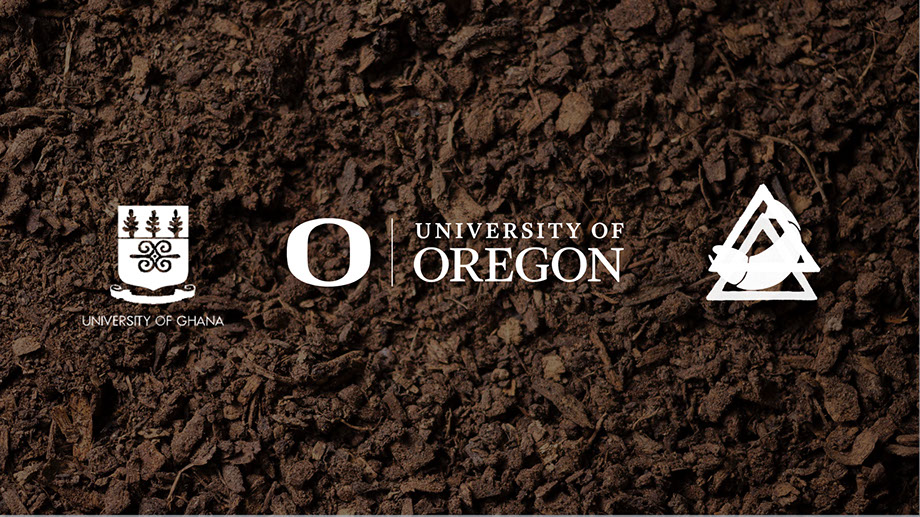
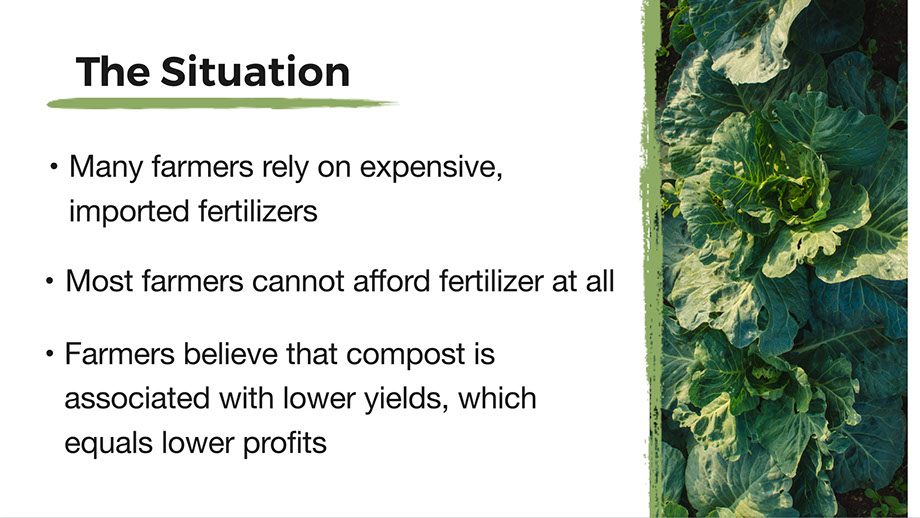
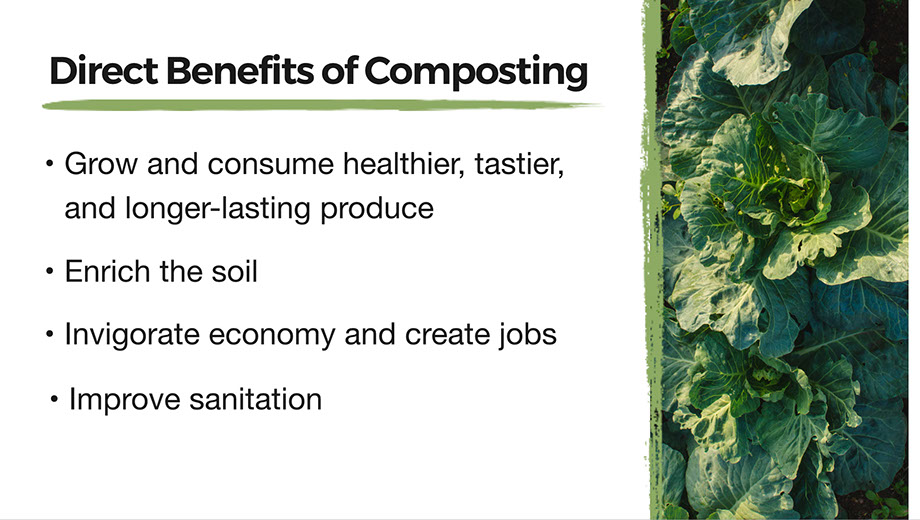
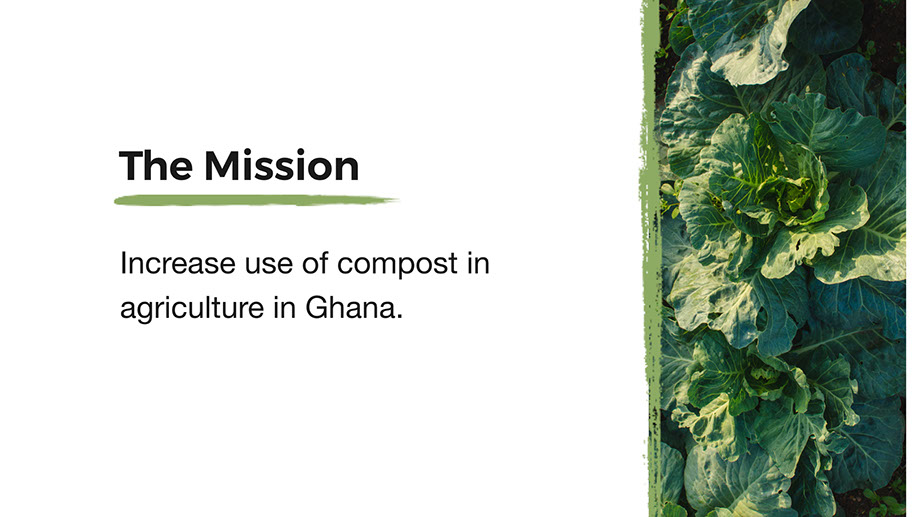
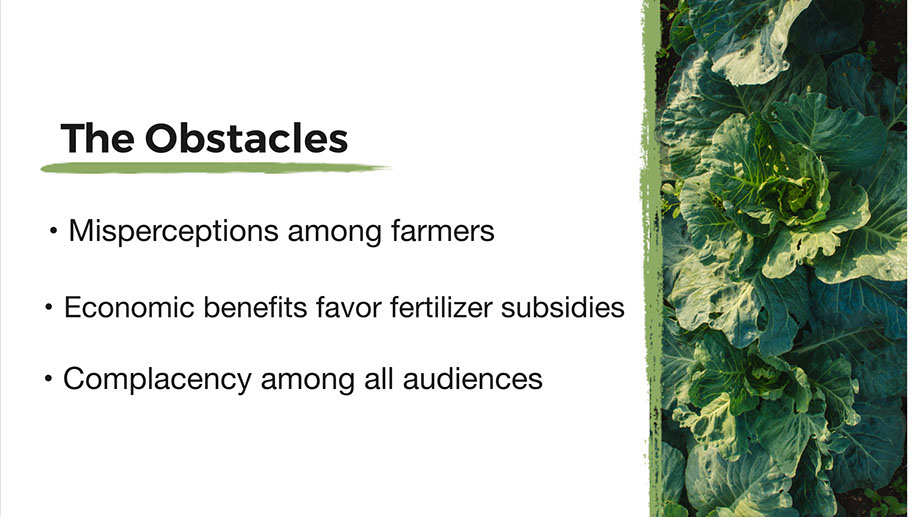
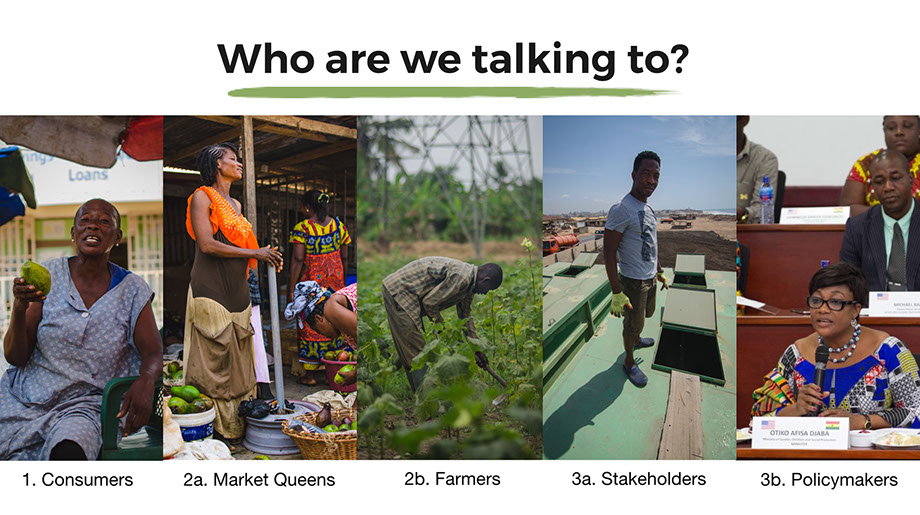
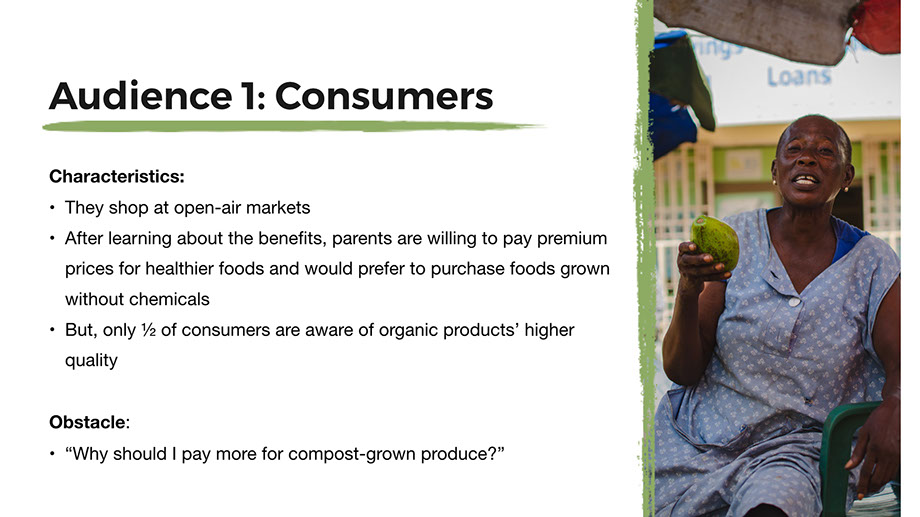
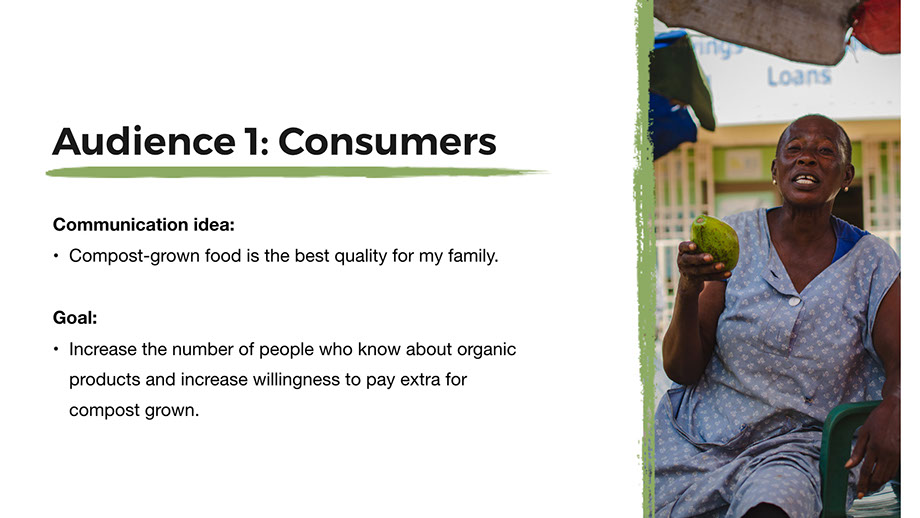
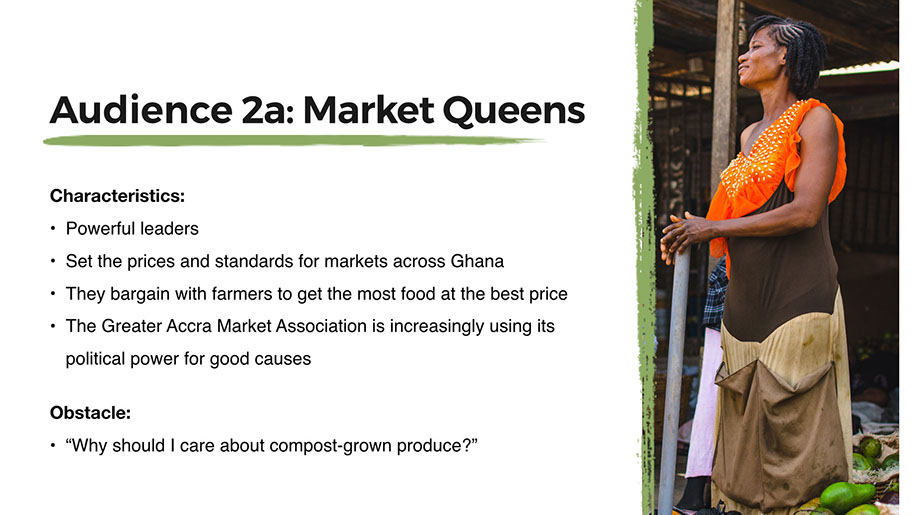
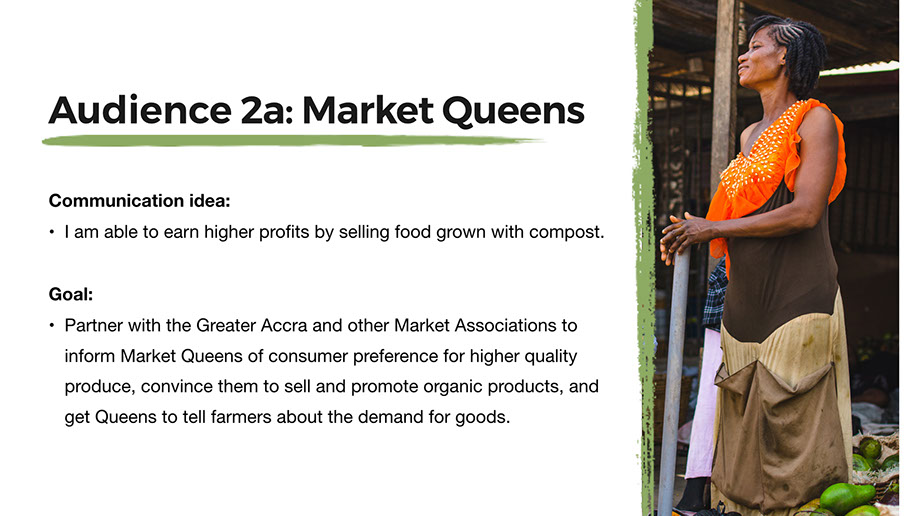
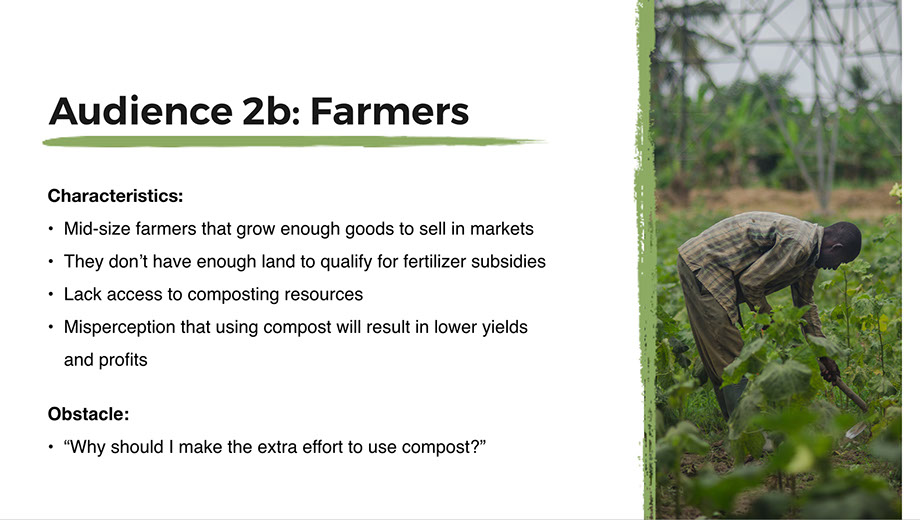
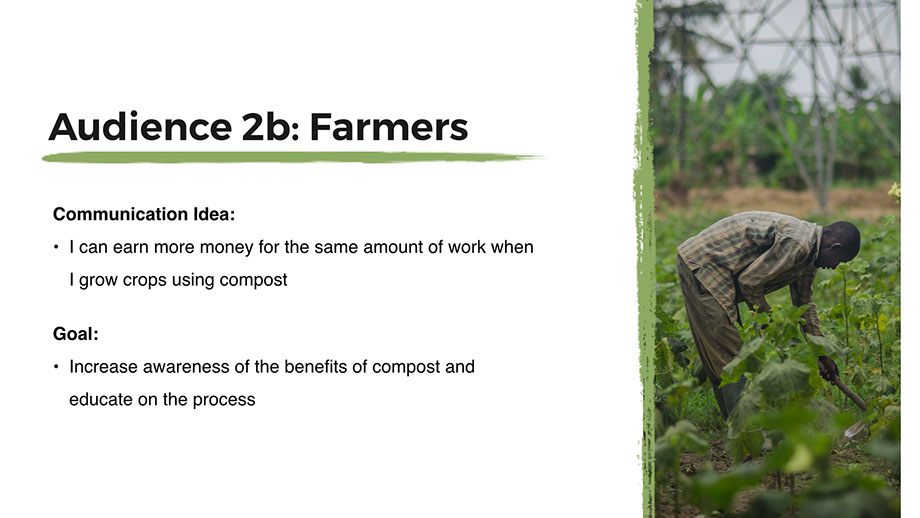
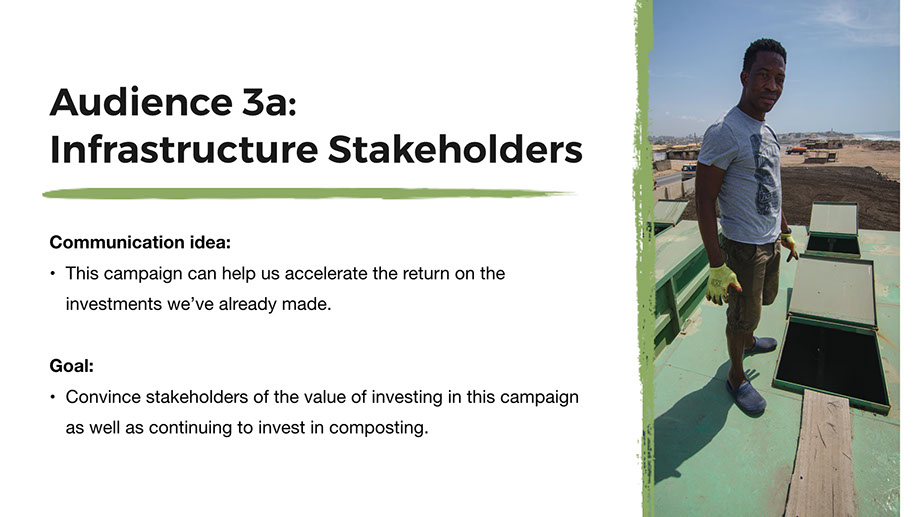
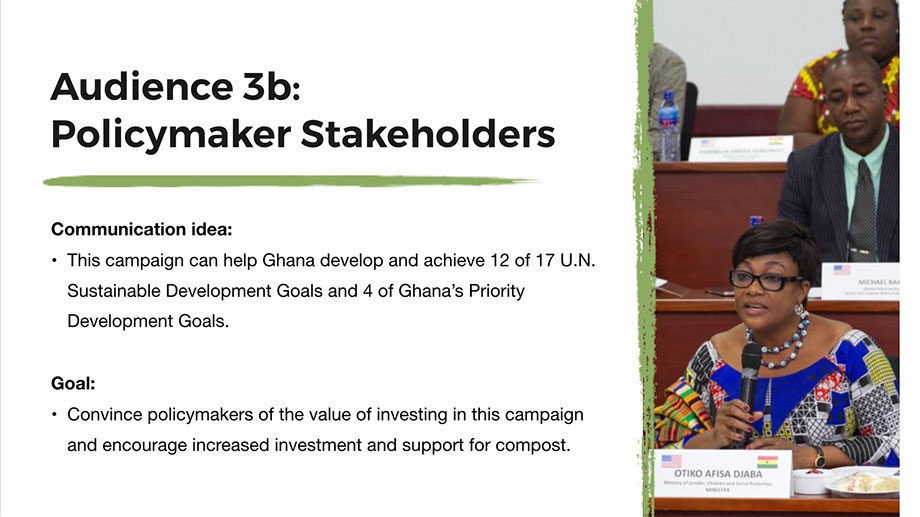
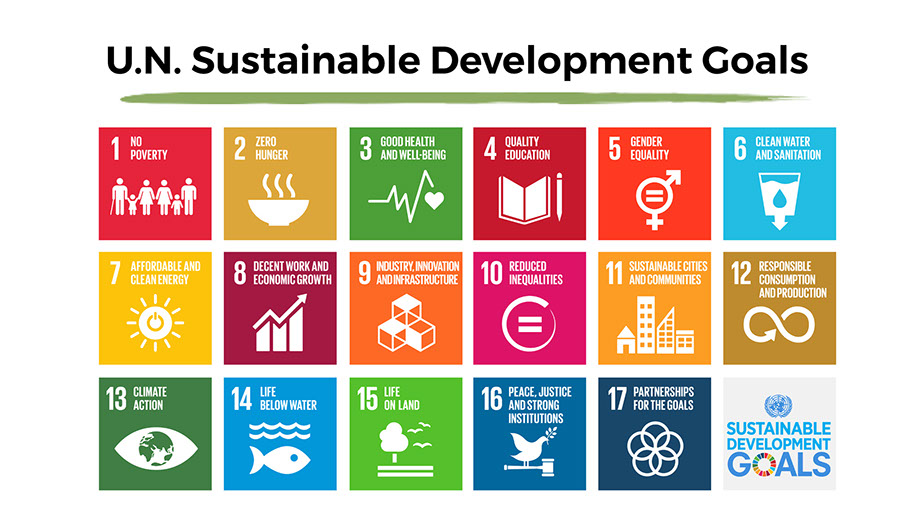
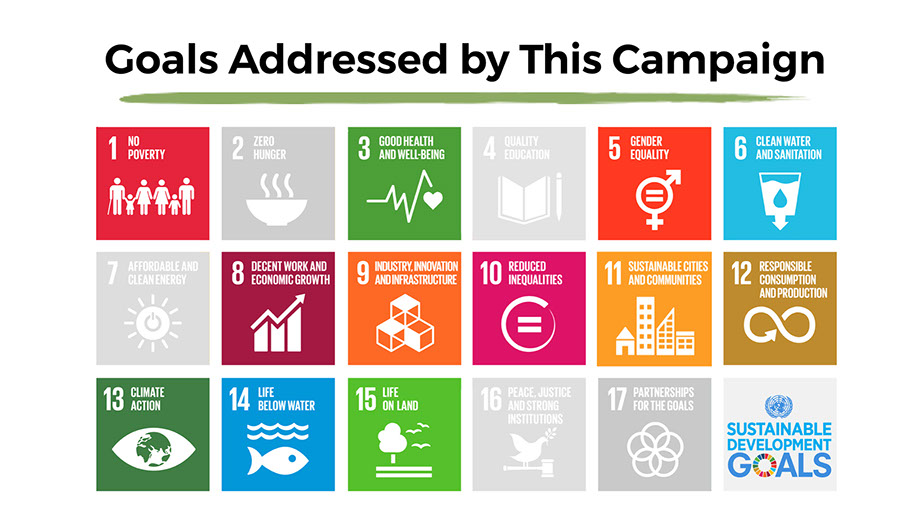
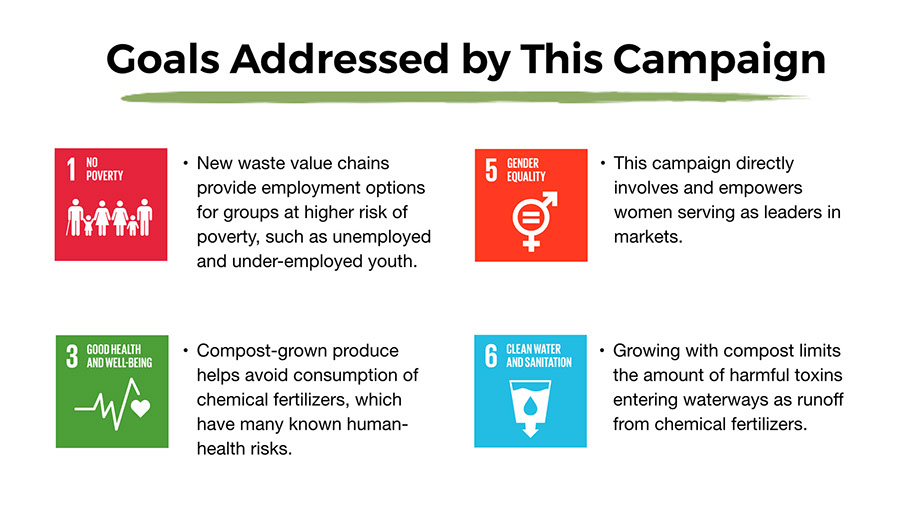
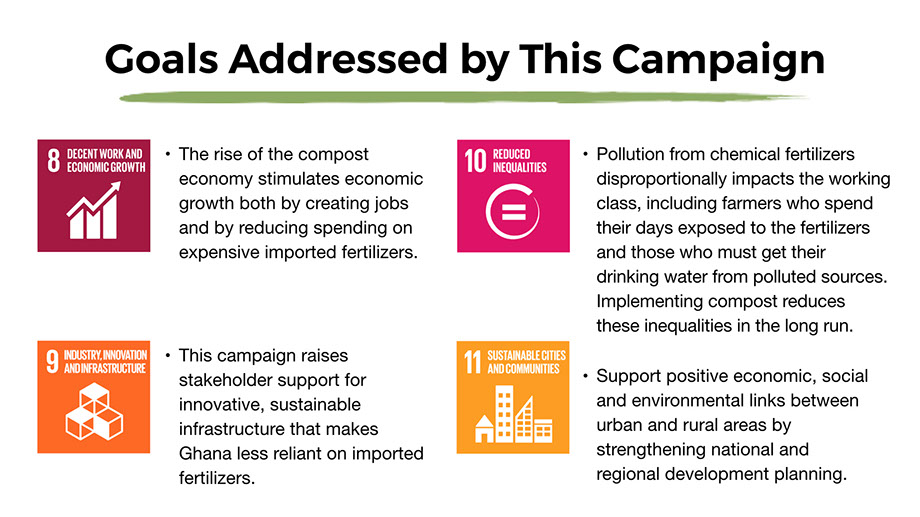
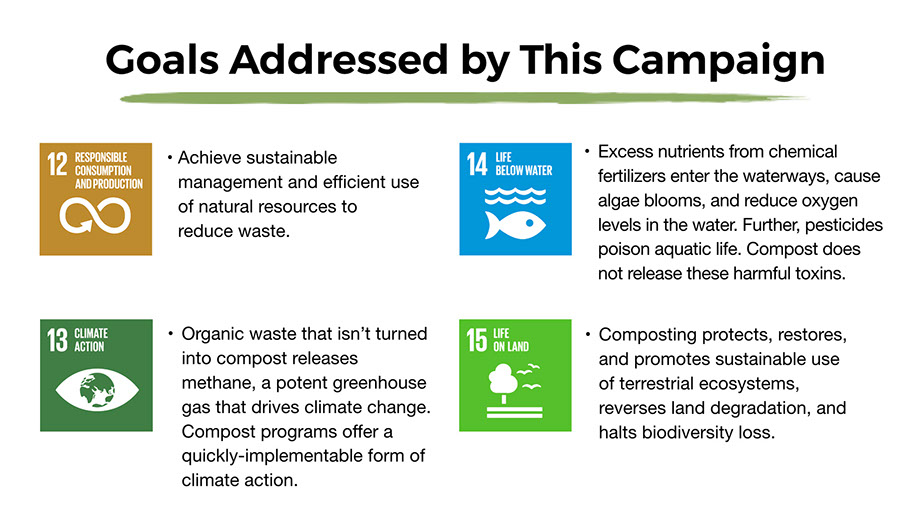
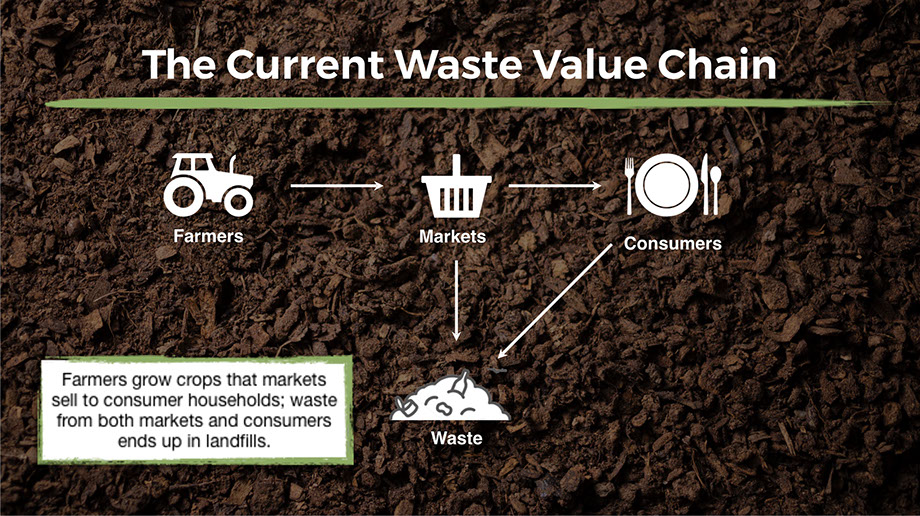
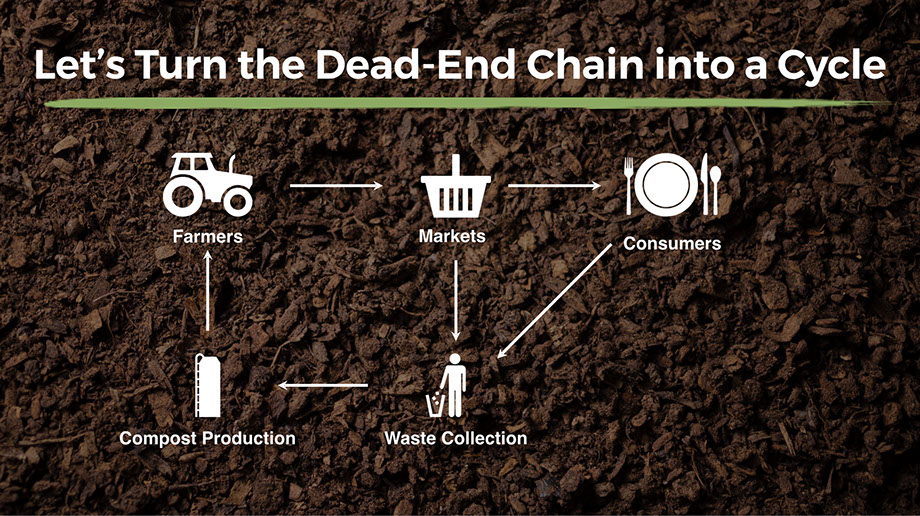
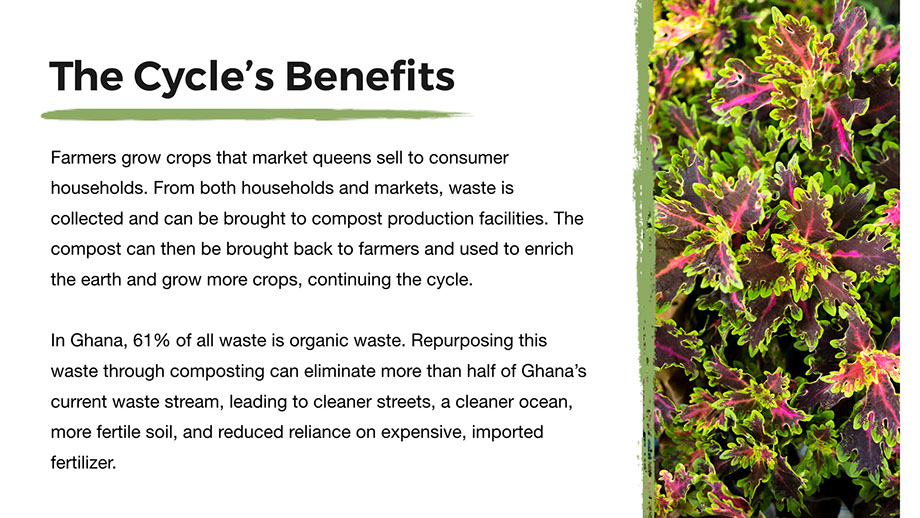
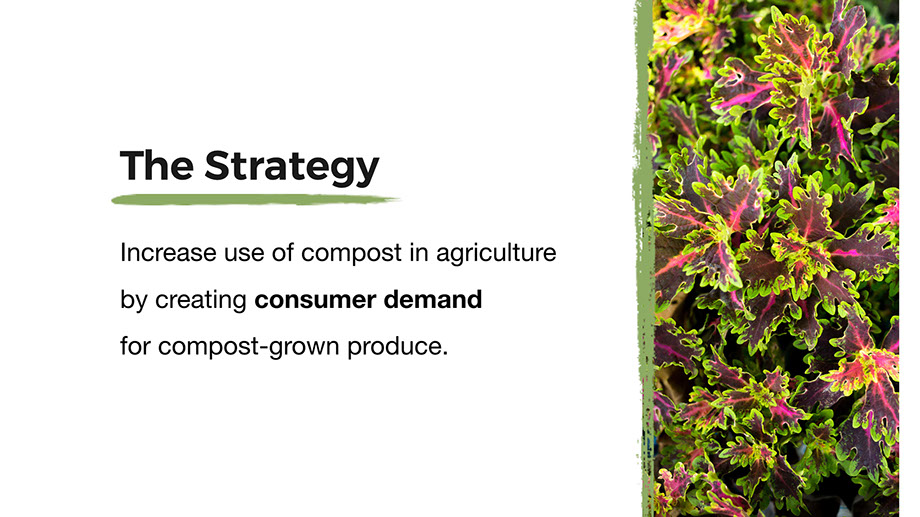
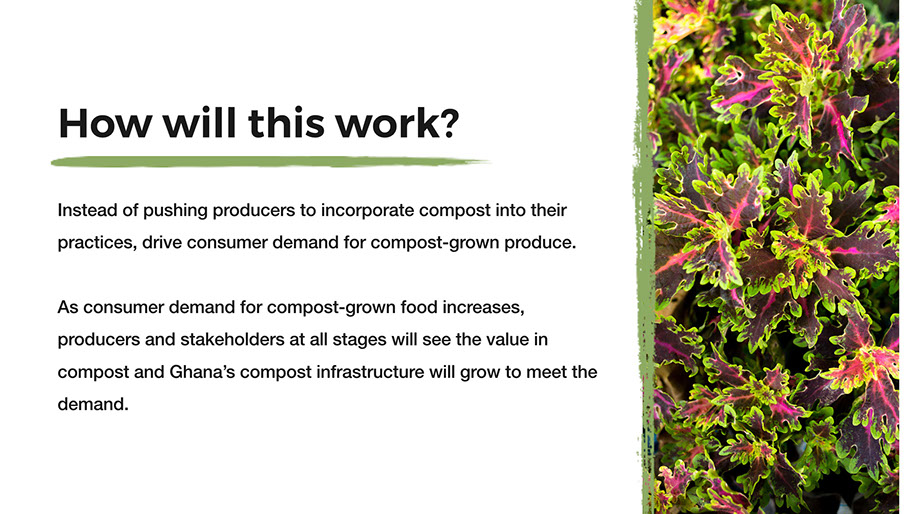
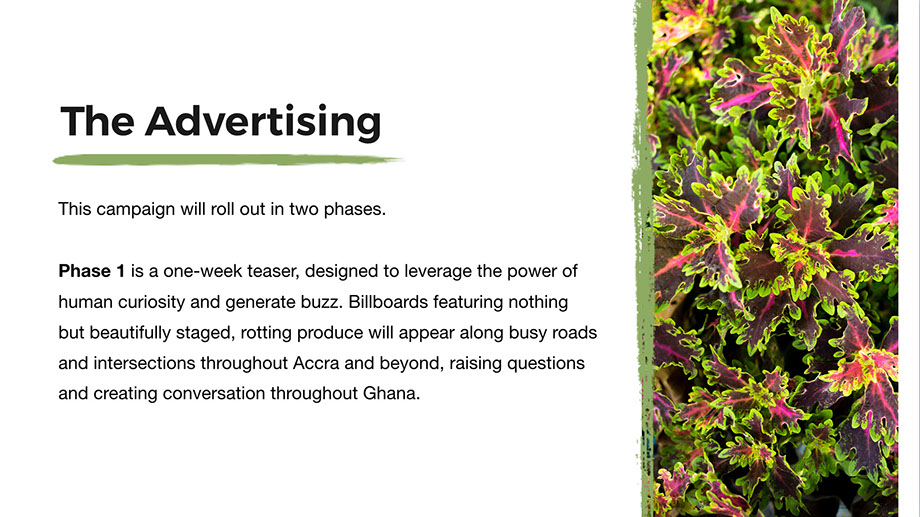
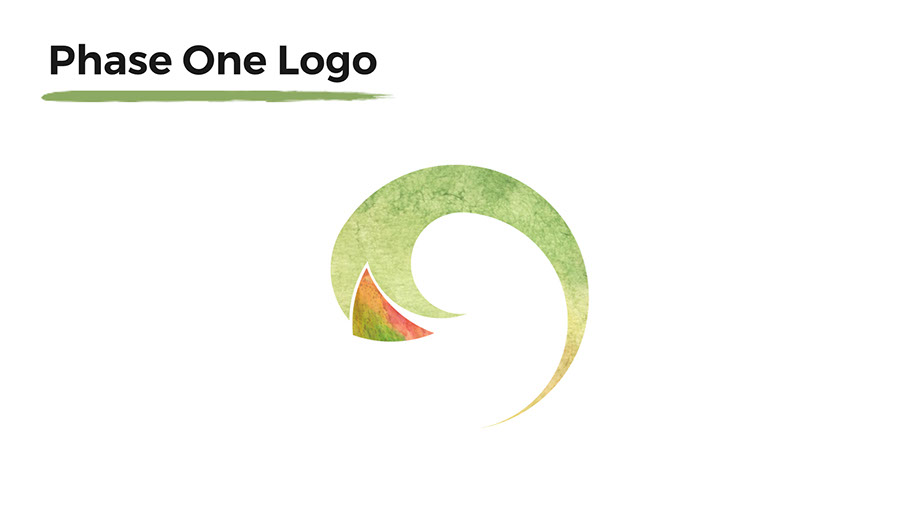
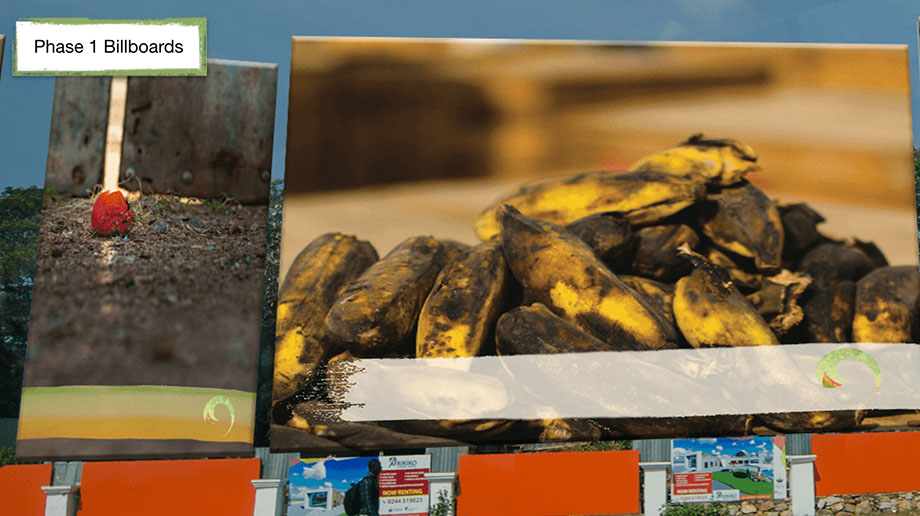
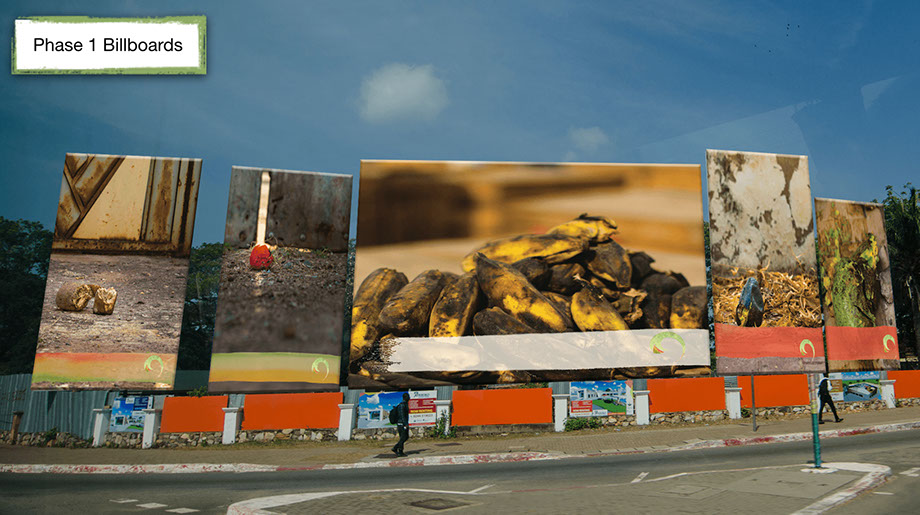
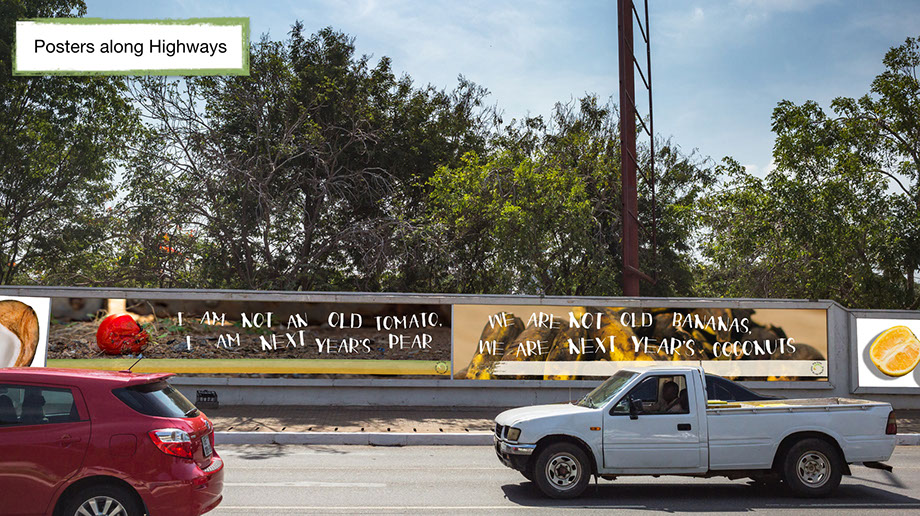
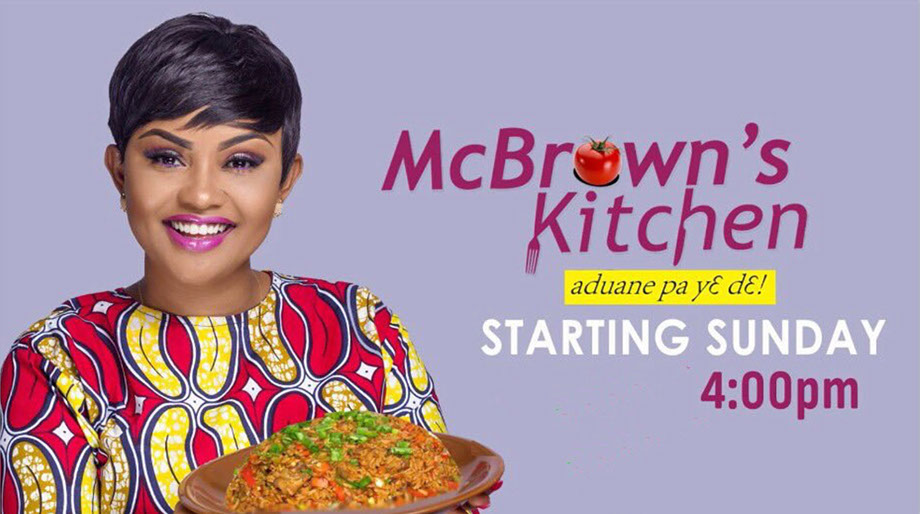
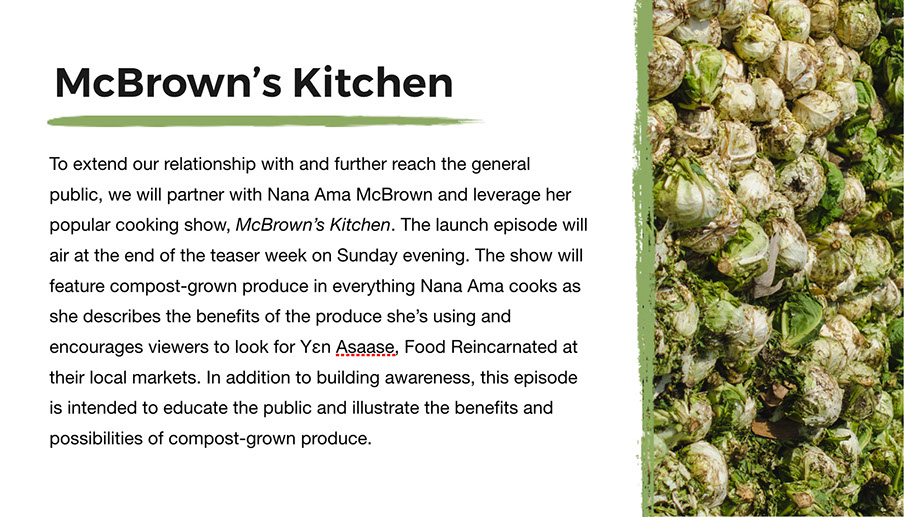
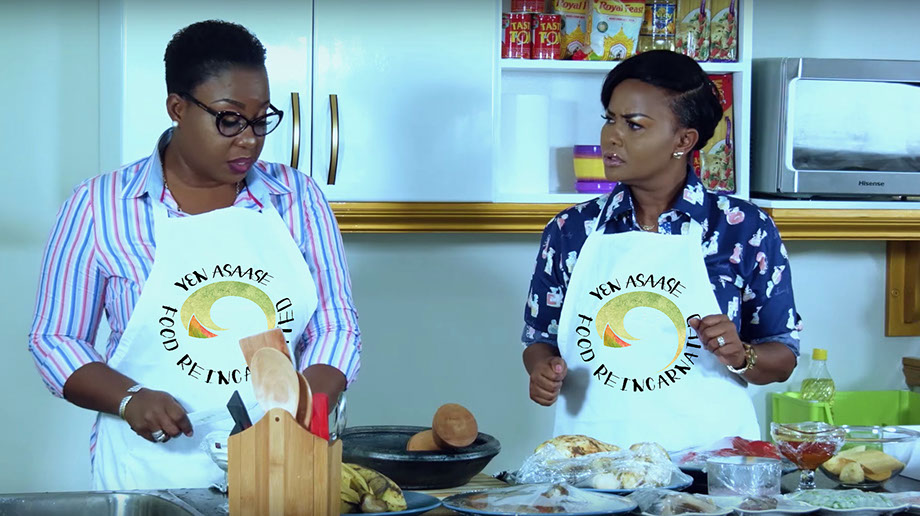
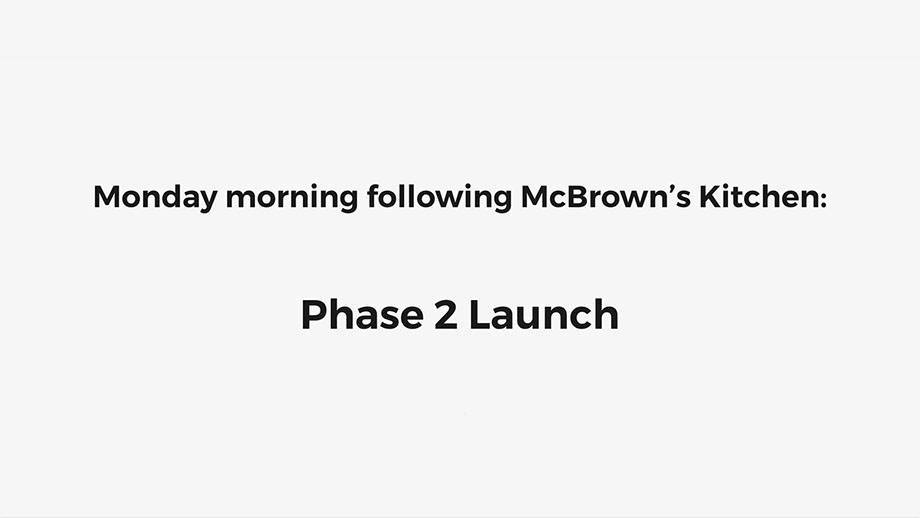
2 - 33
<
>

Yɛn Asaase translates from Twi to
“Our Land.”
Earth’s land belongs to each of us, as does the
bounty which Asaase Yaa provides.
Food Reincarnated is the idea of giving your leftovers a new life, because that which is not consumed is not always waste. Reincarnation is exactly what happens with compost – food is grown, it rots, and the organic waste is composted and repurposed, enriching the soil to produce better yields in the future.
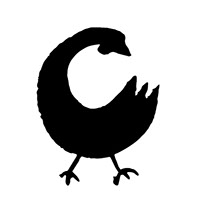
The logo takes inspiration from the Sankofa, an Adinkra symbol meaning “to go back and get it.”
The logo symbolizes the cycle of growth and a return to our roots in choosing to compost.
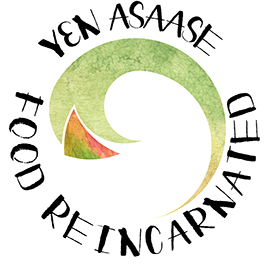

Yɛn Asaase, Food Reincarnated will flood the radio airwaves Monday morning as commuters head to work. Radio’s vast popularity in Ghana ensures the message will reach a substantial audience.
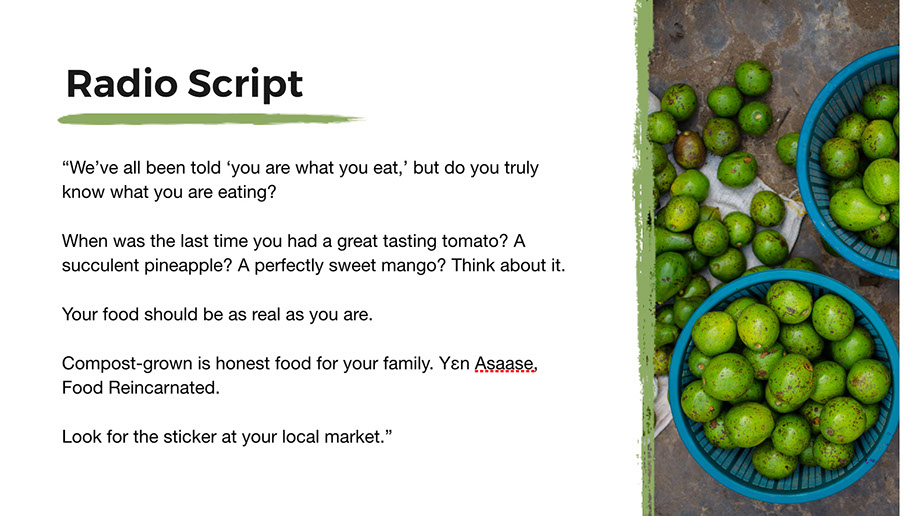
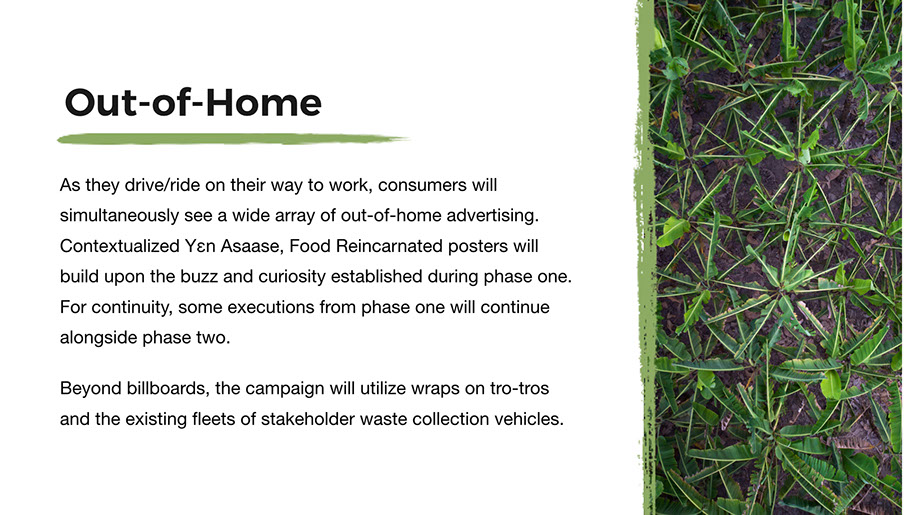
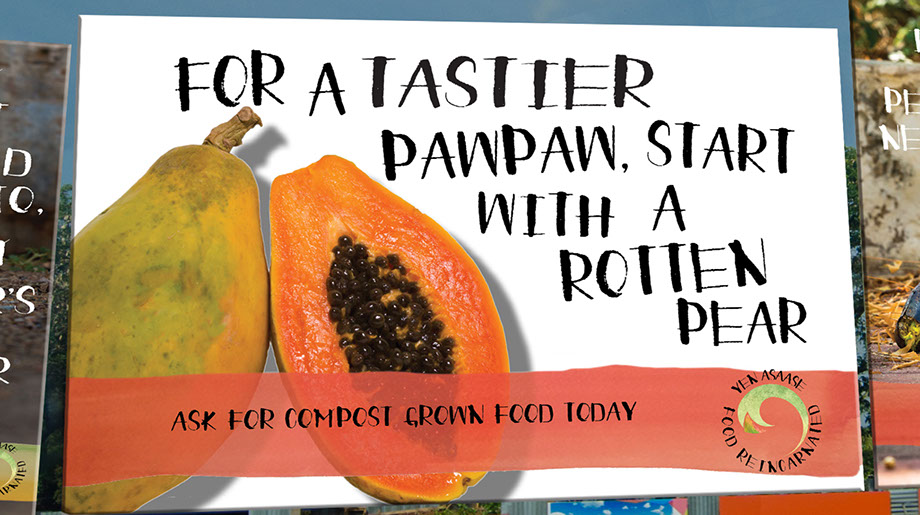
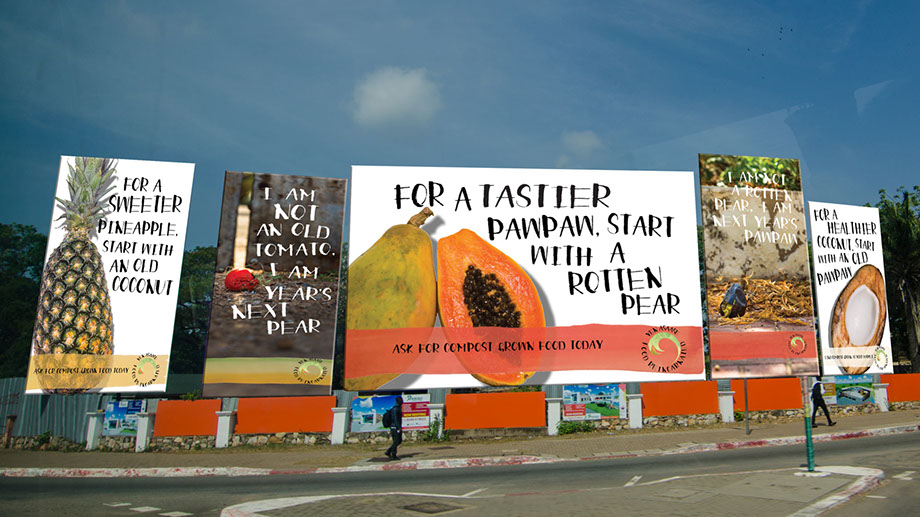
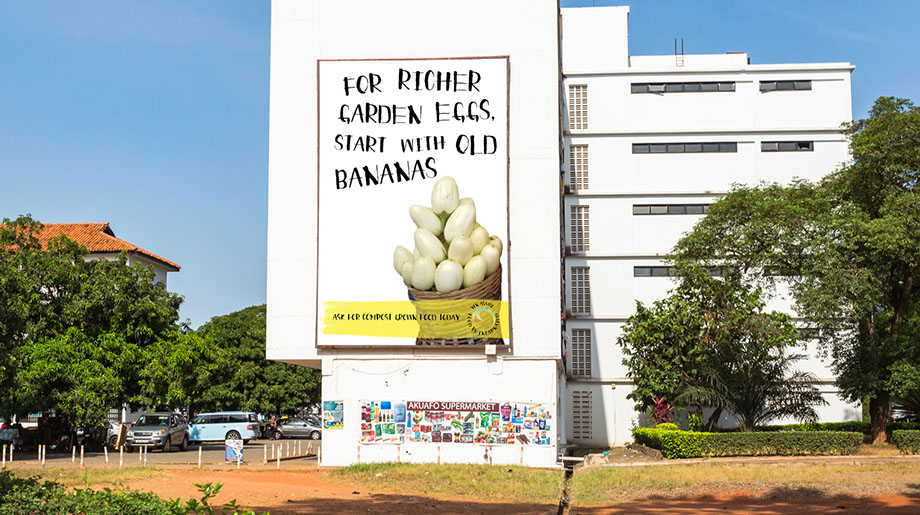
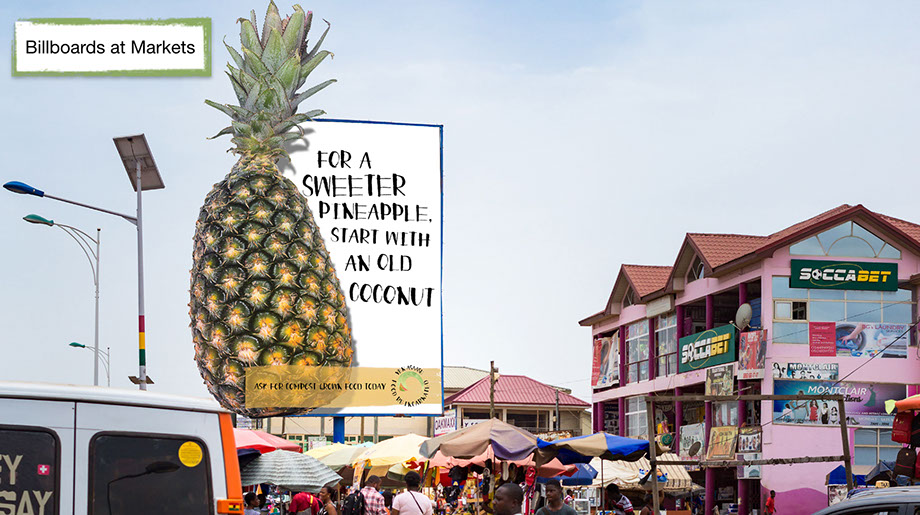
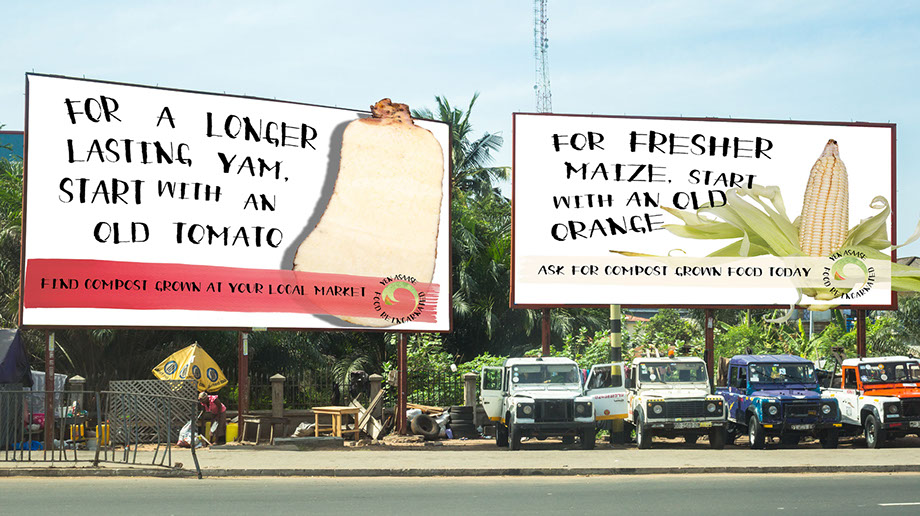
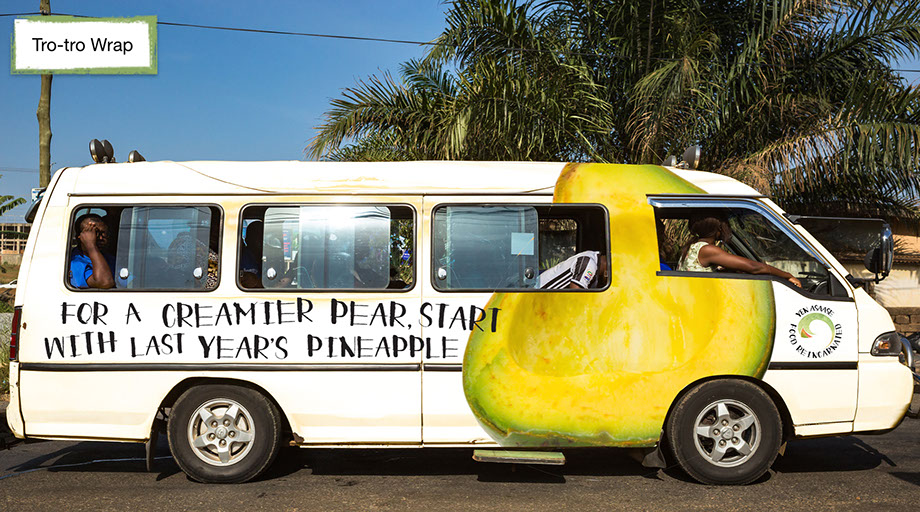
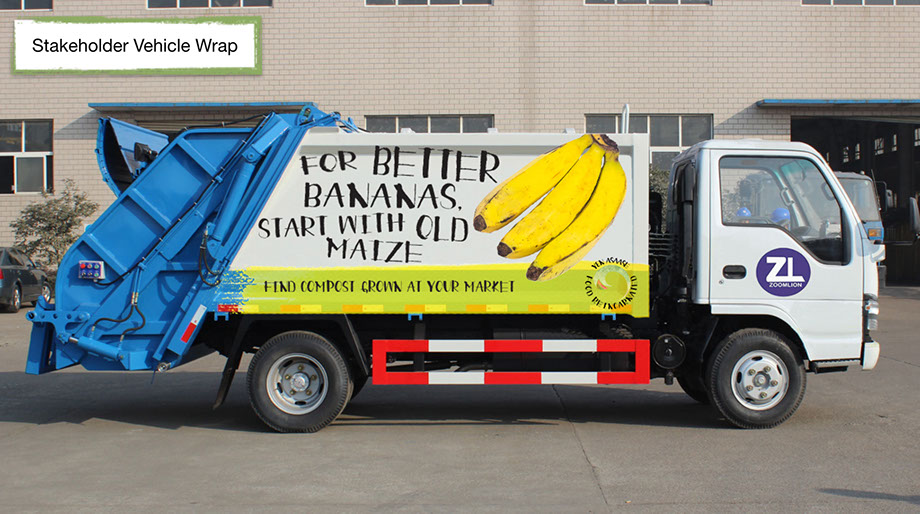
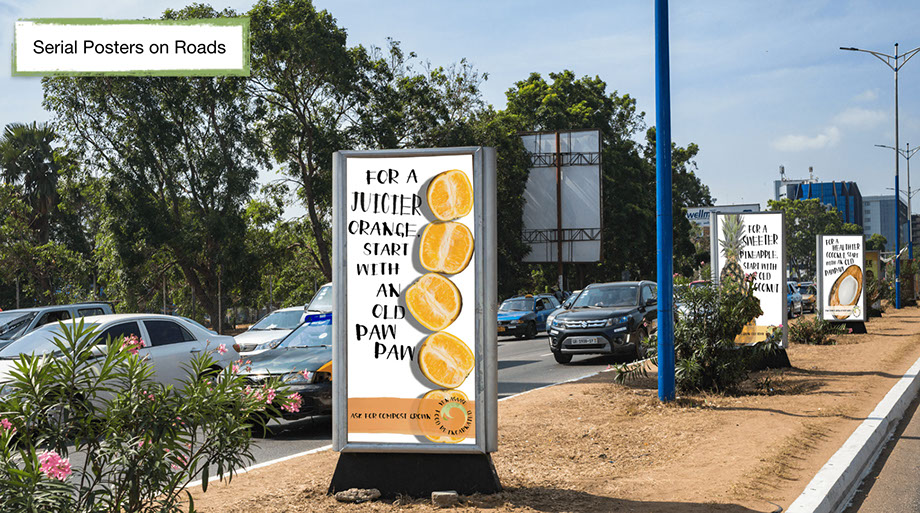
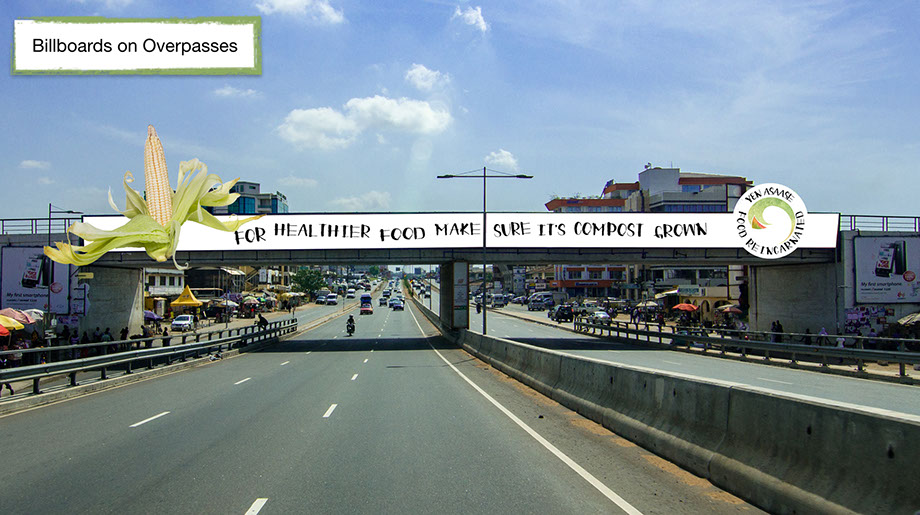
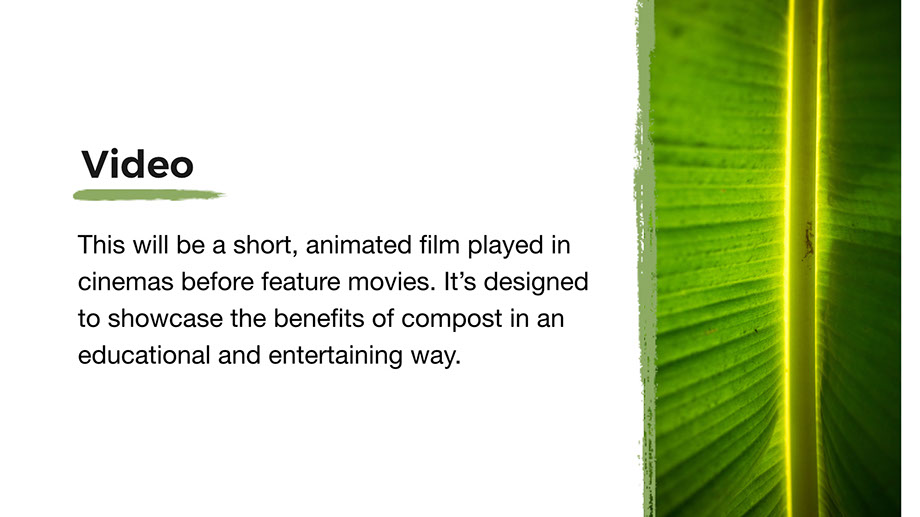
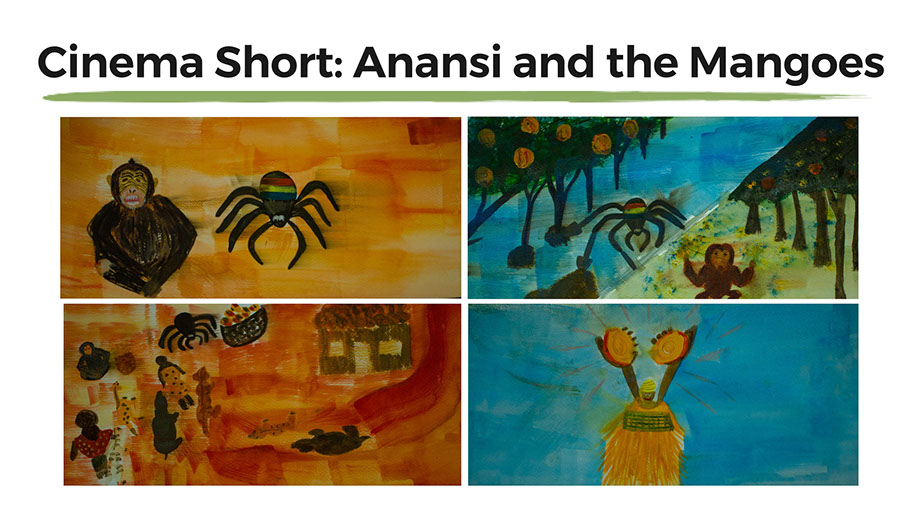
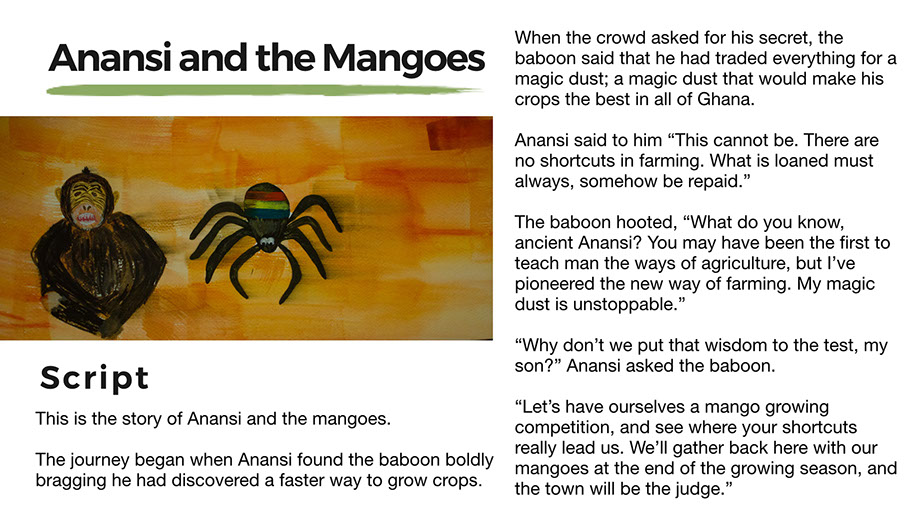
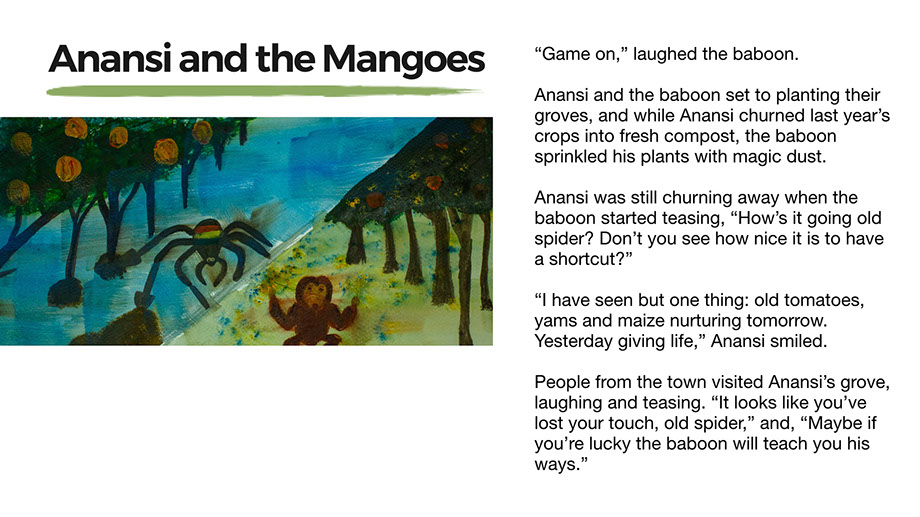
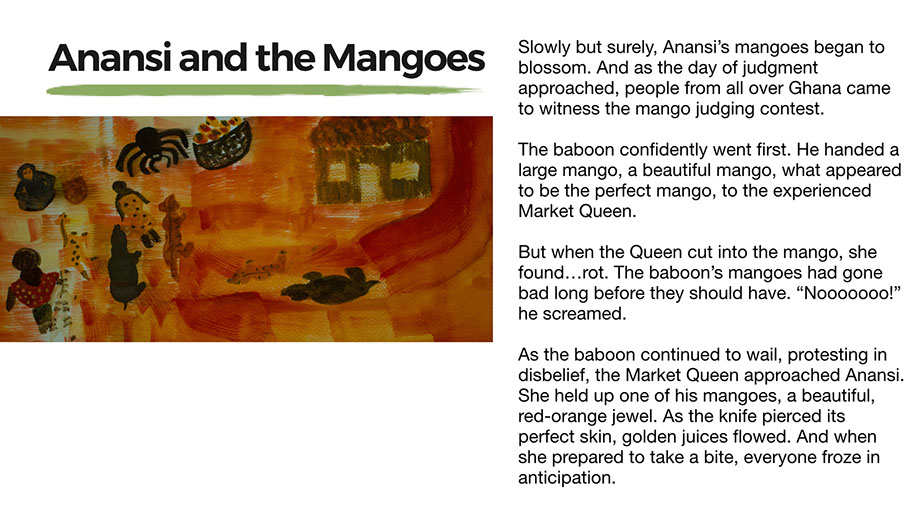
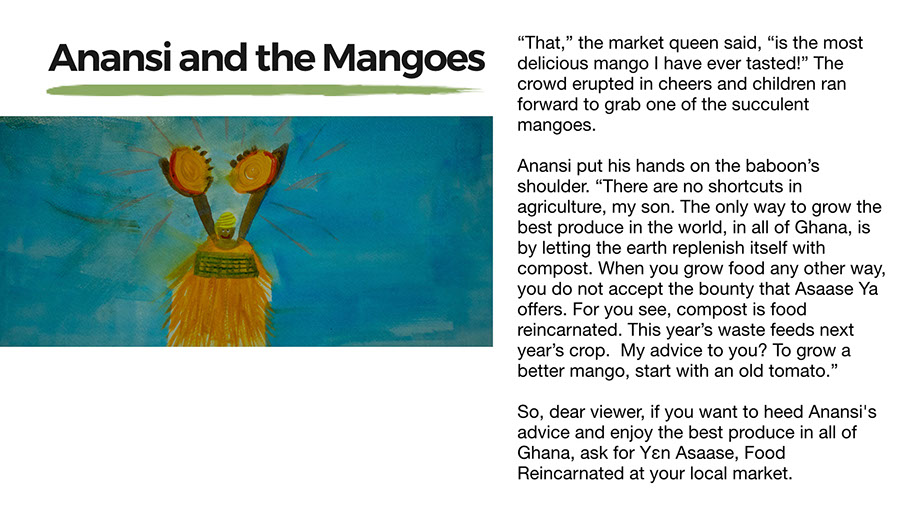
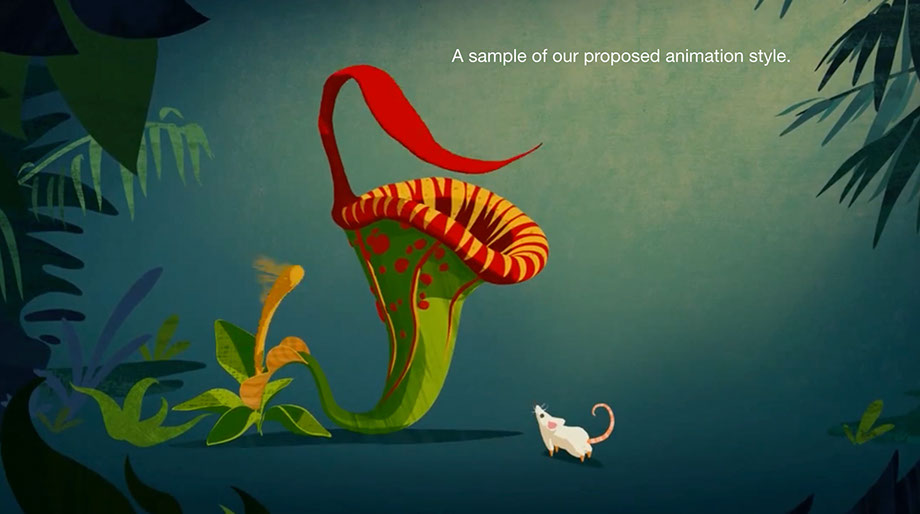
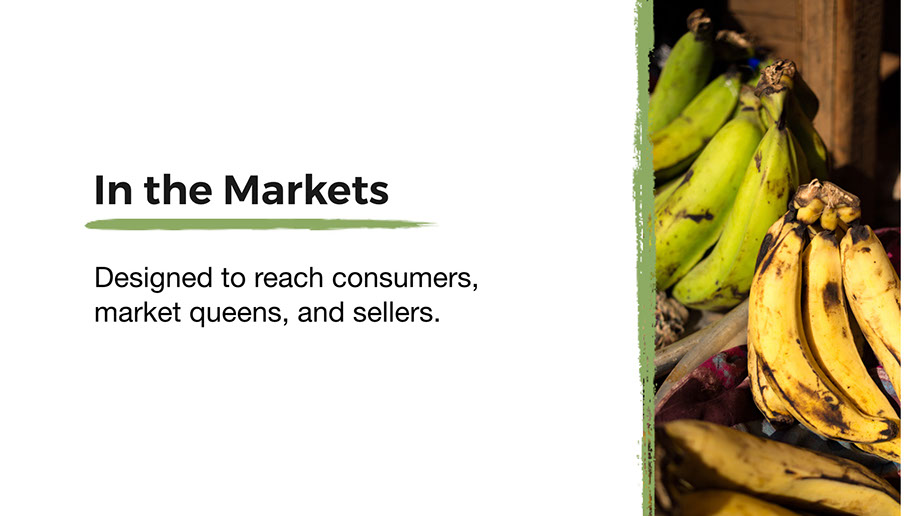
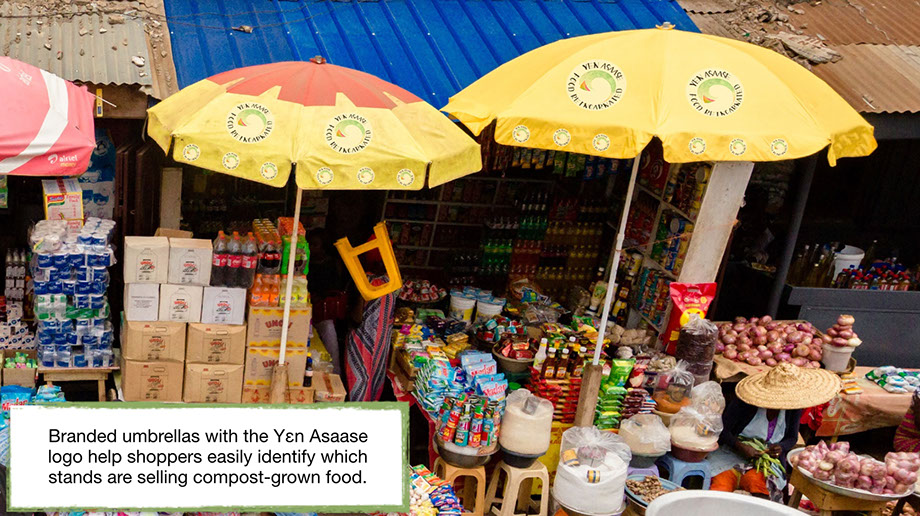
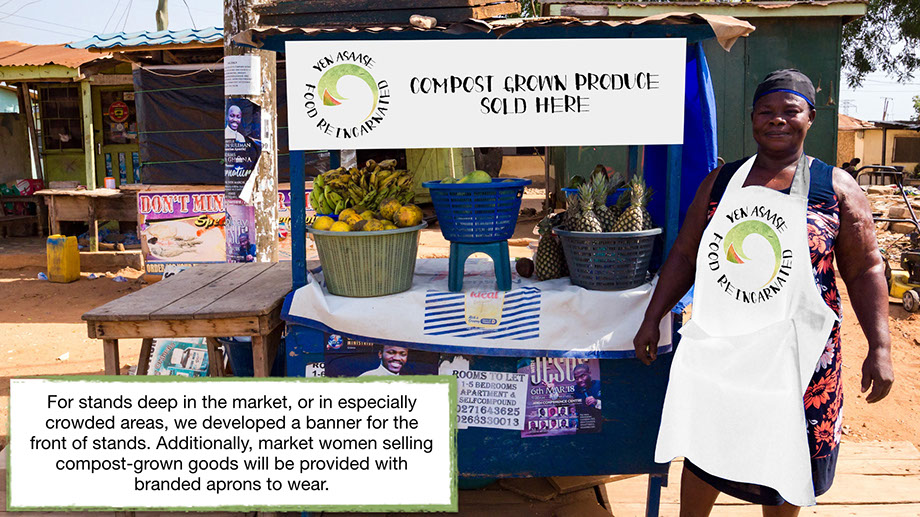
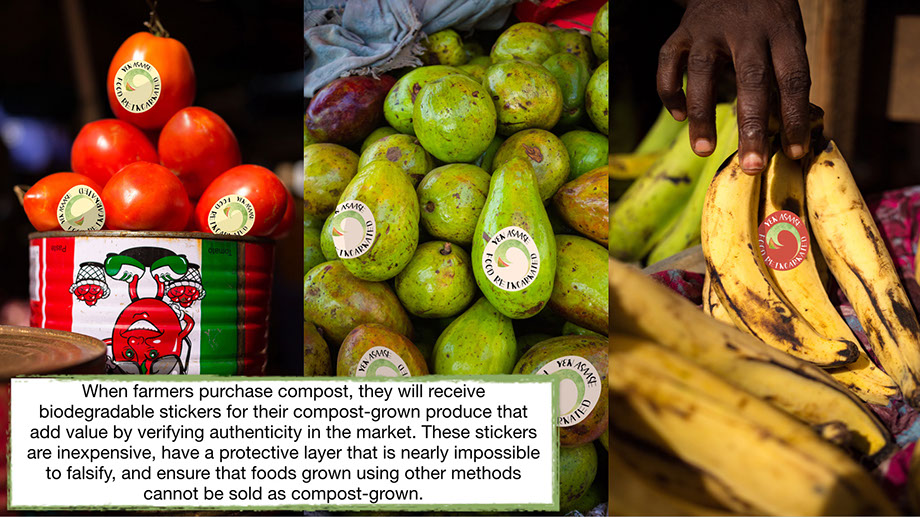
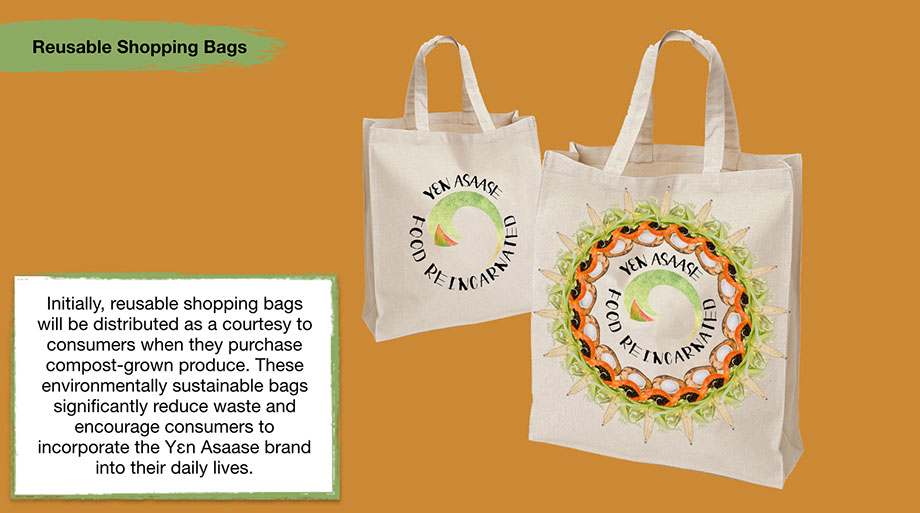
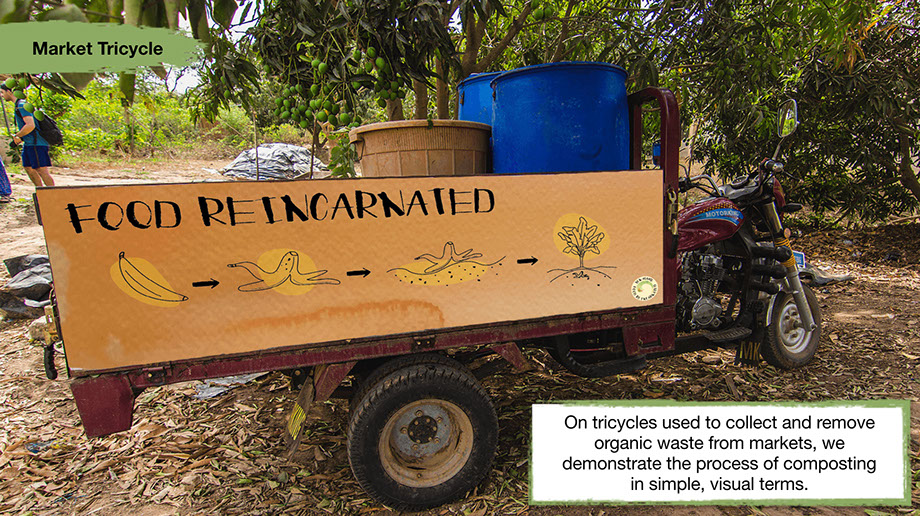
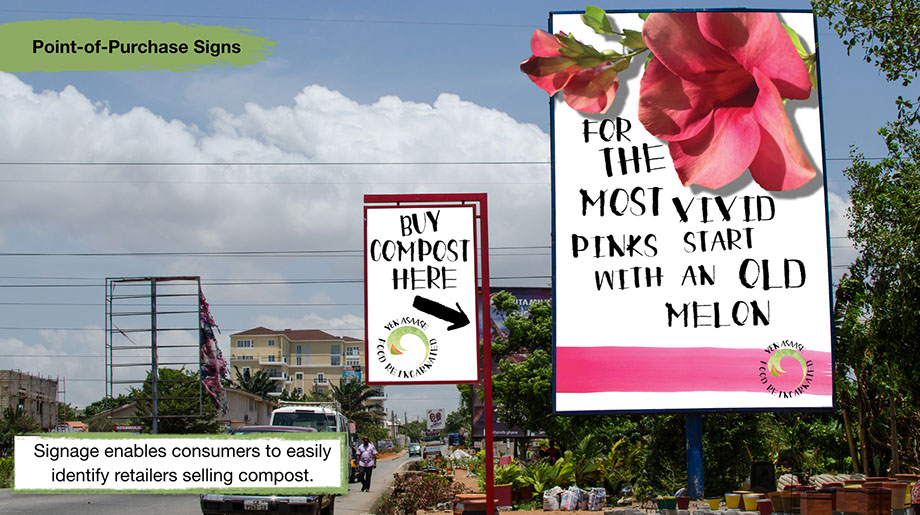
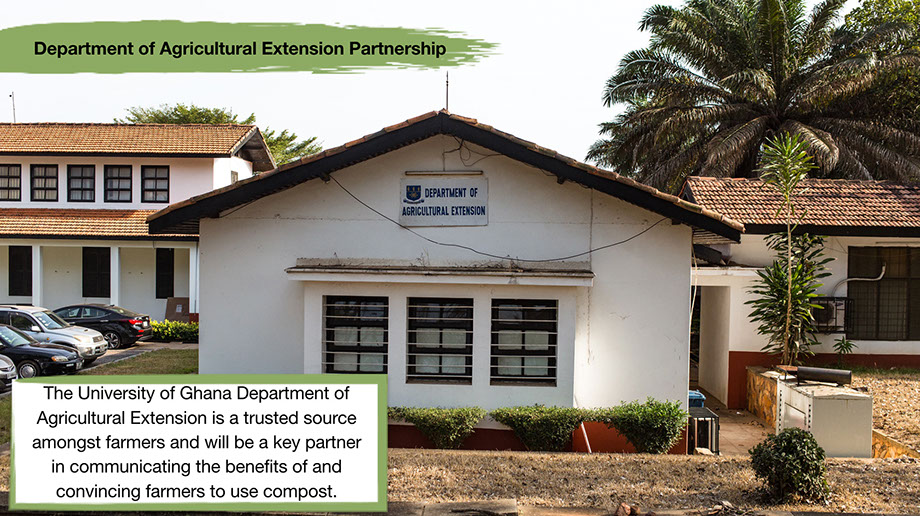
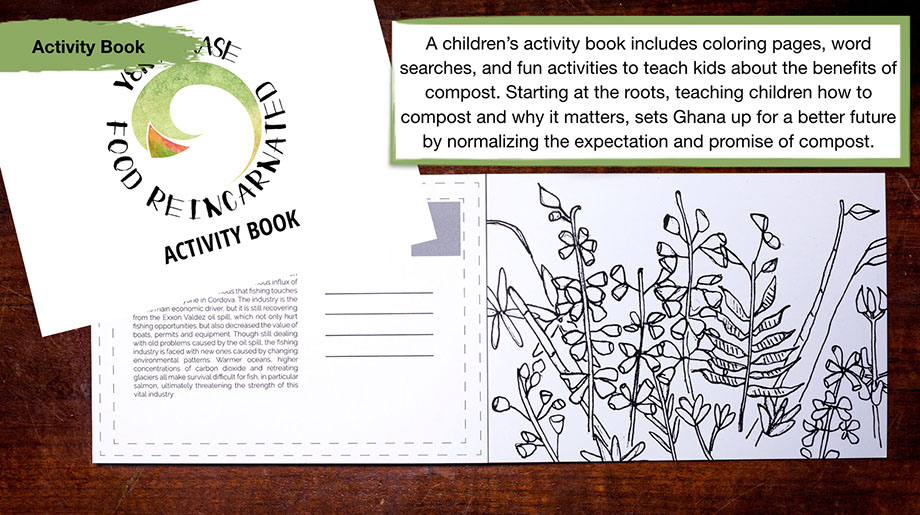
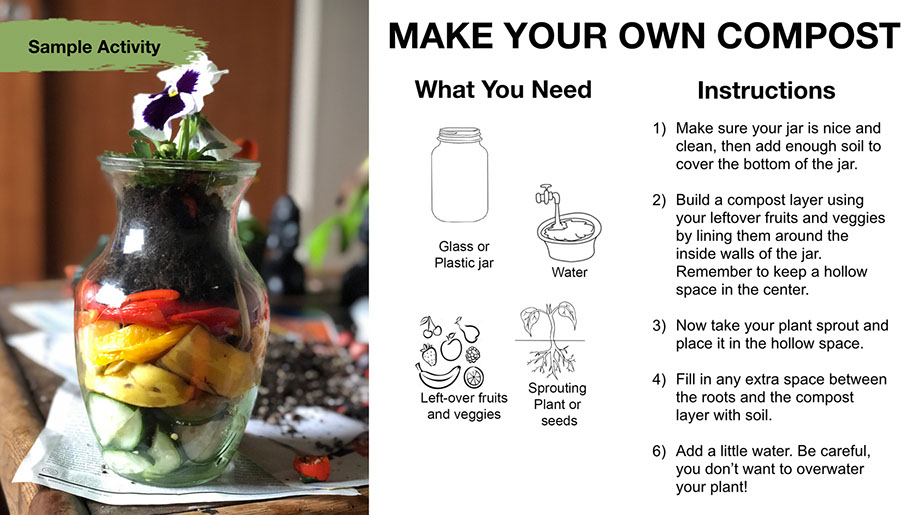
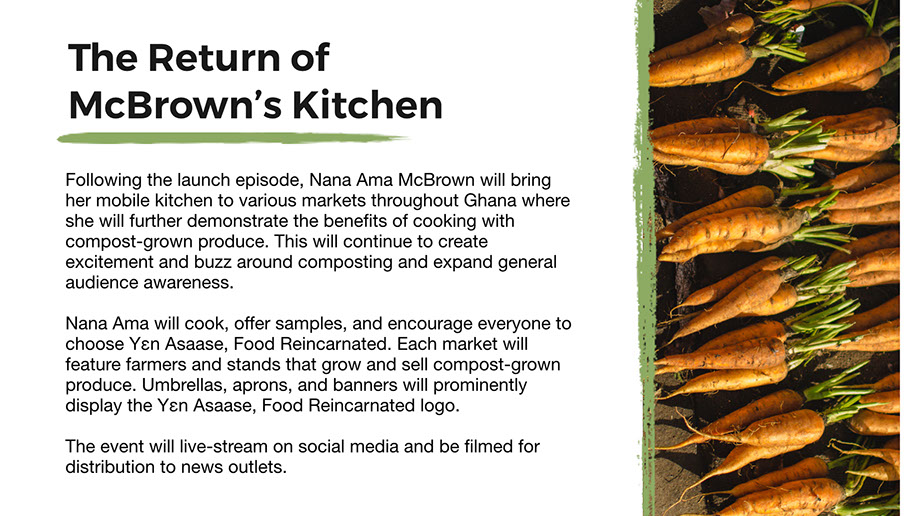
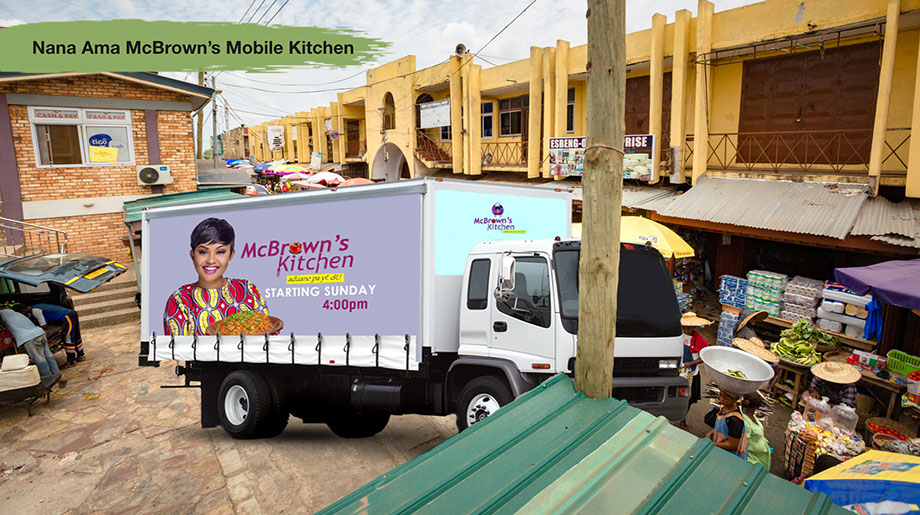
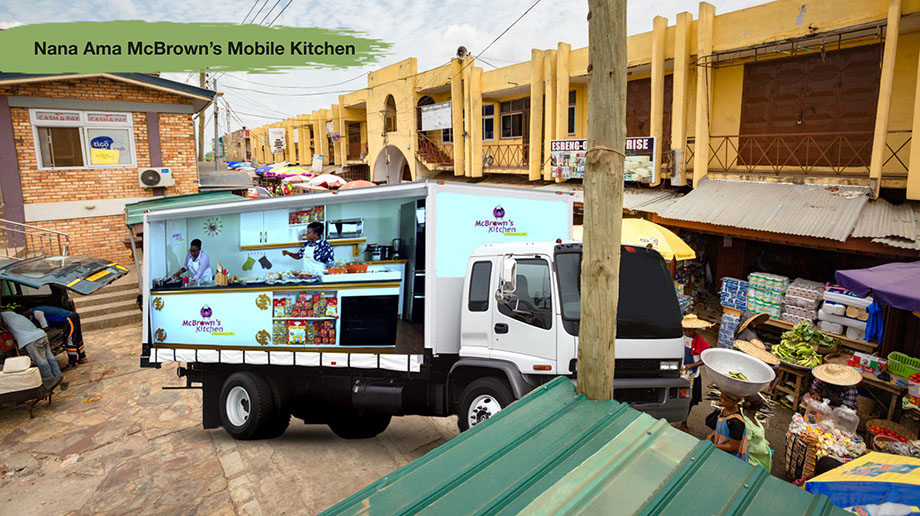
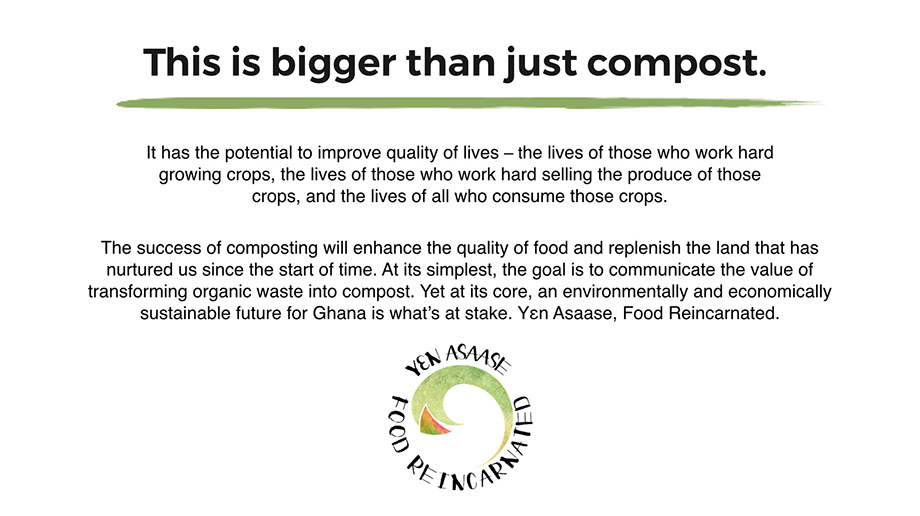
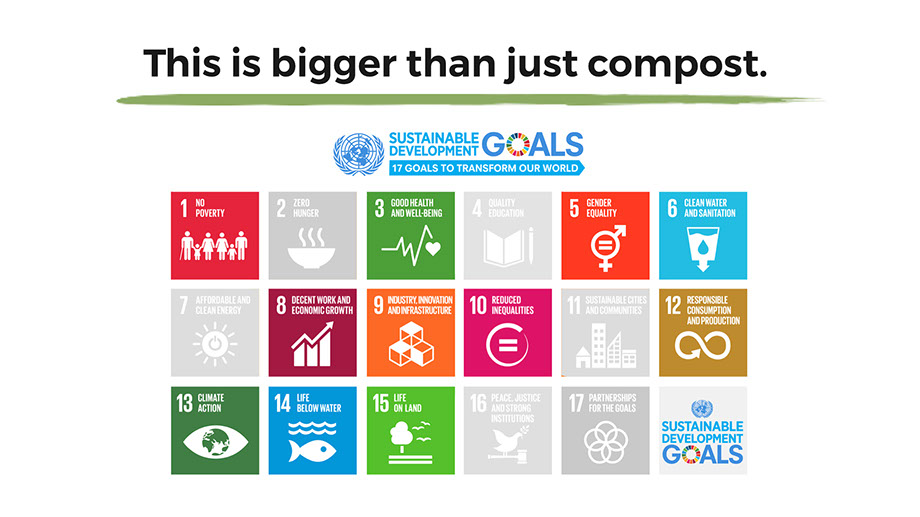
1 - 33
<
>
See how we are continuing our interest in compost